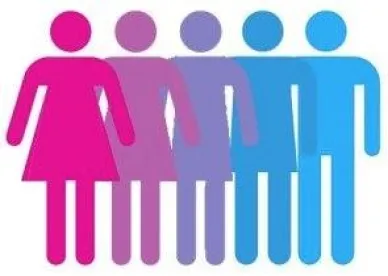New York State and New York City have issued expansive new guidelines to protect the rights of transgender and gender non-conforming individuals.
NYSDHR’s Regulations Ban Transgender Discrimination
The New York State Division of Human Rights adopted new regulations, effective January 20, 2016, that ban discrimination and harassment against transgender people and affirm that transgender individuals are protected under New York State’s Human Rights Law. The new regulations expand the definition of “sex” under New York state law to include gender identity and transgender status.
The new regulations apply to public and private employers throughout the state.
These regulations were first introduced by Governor Andrew Cuomo in October, 2015 — marking the first time any governor has issued statewide regulations to prohibit harassment and discrimination on the basis of gender identity, transgender status or gender dysphoria. (For more, see our article, New York Enacts Gender Equity Laws.) “Today we are sending the message loud and clear that New York will not stand for discrimination against transgender people,” Governor Cuomo said at the time.
The regulations confirm that the Division of Human Rights will accept and process Human Rights Law complaints alleging discrimination based on gender identity, sex, disability, and other unlawful discrimination against transgender individuals.
In addition to damages for back and front pay, compensatory damages for mental anguish, civil fines and penalties, the Commissioner of Human Rights may award civil fines and penalties of up to $50,000, or up to $100,000 if the discrimination is found to be “willful, wanton or malicious.” The Division also may require policy changes and training as appropriate and, unlike under federal employment discrimination law, compensatory damages to individuals are not capped.
City Commission Guidance on Gender Identity Discrimination
On December 21, 2015, the New York City Commission on Human Rights, responsible for enforcing the New York City Human Rights Law (“NYCHRL”), issued a detailed legal enforcement guidance on transgender discrimination, reiterating that gender discrimination, or being treated “less well than others on account of gender,” includes discrimination or harassment based on gender, gender identity, gender expression, or transgender status.
The guidance includes specific violations and best practices for compliance and was described by Mayor Bill de Blasio’s office as making the NYCHRL “one of the strongest in the nation in protecting the rights of transgender and gender non-conforming individuals.” The NYCHRL (and the guidance) applies to employment, public accommodations, and housing. We discuss the employment-related guidance and its impact on NYC employers below.
New York City Human Rights Commissioner Carmelyn Malalis has stated that the Commission intends to “aggressively” enforce the protections in order to ensure the safety of transgender and gender non-conforming individuals.
The guidance provides eight specific violations of the NYCHRL related gender discrimination. A summary of the violations, the Commission’s examples and best practices recommendations follows.
1) Failing to Use an Individual’s Preferred Name or Pronoun
-
Violations would include intentionally or repeatedly referring to a transgender woman as “him” or “Mr.” despite that individual making clear which pronouns and title she uses; calling a woman “Mr.” because her appearance is aligned with traditional gender-based stereotypes of masculinity; refusing to call a transgender woman her preferred name, Jane, because her identification says that her first name is John; or requiring that an employee provide medical information in order to use that employee’s preferred name, pronoun, or title.
-
The Commission recommends that employers have a policy of asking all employees to specify their preferred name and gender pronouns (and updating internal personnel systems to allow self-identification of this information), which avoids singling out employees. Similarly, employers should not limit the options for identification to only male or only female.
2) Refusing to Allow Individuals to Utilize Single-Sex Facilities, Programs Consistent with Their Gender
-
Violations would include prohibiting a transgender woman from using the women’s restroom; requiring proof of or identification with a particular sex or gender for eligibility or access to a gender or sex-based program; barring someone from participating in a program based on a concern that a transgender or gender non-conforming person could make others feel uncomfortable; or requiring a transgender or gender non-conforming person to use a single-occupancy restroom.
-
The Commission recommends that employers provide single-occupancy restrooms that are not designated for one particular sex or gender, and that, where applicable, they provide private space within multi-user facilities for employees with privacy concerns. Employers also are urged to create policies that ensure access to single-sex facilities based on employees’ gender identity or expression and to train all employees — especially managers and employees who have contact with members of the public — to ensure compliance with the policy.
-
While not required, the Commission also recommends that employers post the following sign in all single-sex facilities: “Under New York City Law, all individuals have the right to use the single-sex facility consistent with their gender identity or expression.”
3) Sex Stereotyping
-
Violations would include using anti-gay epithets when speaking to or about an employee based on non-conformity with gender norms; failing to promote a female employee whose behavior does not conform to the employer’s notion of how a female should behave at work; or prohibiting men from wearing jewelry or make-up at work.
-
Employers can avoid potential violations by training all employees on how to create and maintain a work environment that is free from sex stereotyping and ensuring that dress code and appearance policies do not prohibit men from wearing jewelry or make-up.
4) Imposing Different Uniforms or Grooming Standards Based on Sex or Gender
-
Violations could include requiring only individuals who identify as male to have short hair, limiting jewelry to individuals who identify as women, and enforcing policies or standards that require female bartenders to wear make-up or that require different uniforms for men and women. The guidance does clarify that it would not be a violation to provide different uniform shirts — one that is typical of a woman’s blouse and another that is looser fitting in a style typical of a man’s button down shirt. Employers, however, cannot require an employee wear one style over another.
-
Employers with dress code, grooming, or appearance policies or standards that have gender-based distinctions or that apply differently to those who identify as men versus as women should revise these policies to be gender-neutral, that do not impose restrictions or requirements specific to gender or sex.
-
The Commission states in the guidance that the preferences of an employer’s customers or clients will not excuse a policy that violates the law in this regard.
5) Providing Employee Benefits that Discriminate Based on Gender
-
Violations would include offering health benefits to employees’ opposite-sex spouses, but not to same-sex spouses; offering health benefits that cover prostate cancer screening for cisgender men, but not for transgender women; offering health benefits that limit or categorically exclude coverage for gender transition-related health services; or providing a child care stipend to female employees only.
-
Since the number of providers that perform certain transition-related or gender-affirming health care is limited, the Commissioner advises employers to consider health benefit plans that (1) follow recognized professional standards or medical care for transgender individuals (the World Professional Association for Transgender Health is an example) and (2) do not prohibit, limit, impose significantly higher co-pays (or provide lower reimbursement rates) for out-of-network care. Employers should also consider providing optional comprehensive coverage for transgender employees.
6) Failing to Consider Gender When Evaluating Requests for Accommodations
-
Violations would include refusing to grant a request for unpaid medical leave by a transgender employee despite an employer’s policy of routinely granting unpaid medical leaves to employees who have been working for the employer for over a year; allowing leave for a cisgender woman seeking reconstructive breast surgery deemed medically necessary, but denying that same accommodation when requested by a transgender woman undergoing the same medically necessary surgery; requesting medical documentation to verify leave time only from transgender employees (and not from cisgender employees); or having a policy of determining retention and accrual of benefits during personal or medical leaves based on gender.
-
To avoid potential violations, employers should create internal procedures for evaluating all accommodation requests in a fair and non-discriminatory manner.
7) Engaging in Discriminatory Harassment
-
Violations would include conduct, such as violence, motivated by a person’s actual or perceived gender identity or expression that interferes (or attempts to interfere) with the exercise of a legal right; the threat of violence; a pattern of threatening verbal harassment; the use of force, intimidation, or coercion; defacing or damaging real property; and cyberbullying.
8) Engaging in Retaliation
-
Violations would include repeatedly assigning an employee who made an internal complaint of discrimination to the least desirable shifts (contrary to the normal practice of rotating those shifts equally among employees); demoting or firing an employee who filed a complaint internally, with the Commission, or in civil court; or denying accommodations that are not legally required, but that are routinely granted to other employees, to an employee who was interviewed as a witness in a coworker’s discrimination case.
9) Additional Recommendations
-
The Commissioner recommends that employers implement internal anti-discrimination policies for educating employees of their rights and obligations under the NYCHRL with respect to gender identity and expression. Employers should create internal reporting procedures clarifying that alleged violations can be reported without fear of adverse action, and train managers and supervisors on handling such complaints. We strongly recommend that gender identity discrimination should be addressed in any harassment prevention training. Our attorneys are available to assist employers with developing and conducting transgender training.
10) Commission Penalties
In addition to back and front pay, compensatory and punitive damages, potential penalties for violations include:
-
The Commission can impose up to $125,000 for civil penalties, and up to $250,000 for “willful, wanton or malicious conduct,” either of which may be assessed after consideration of the severity of the violation; whether the employer had previous or subsequent violations; the size of the employer (in terms of number of employees and revenue); and the employer’s actual or constructive knowledge of the NYCHRL.
-
The guidance states that “the lack of an adequate anti-discrimination policy” may be considered as a factor by the Commission when “determining liability, assessing damages, and mandating certain affirmative remedies,” we strongly recommend that employers in the City review and revise their policies consistent with the Commission’s guidance. Our attorneys are available to assist employers with revising their EEO (equal employment opportunity) and harassment policies to comply with the new guidance.
Recommendations
The City Commission and the NYS Division clearly intend to strictly enforce the regulations. Employers should consider adopting a comprehensive transgender policy, which should incorporate a gender transition plan. While important, simply adding gender identity to the list of protected groups under the company’s harassment policy may no longer be sufficient to defend such claims.
In order to prevent any discrimination against transgender and gender-nonconforming employees, it is essential to change the workplace culture.






 />i
/>i

